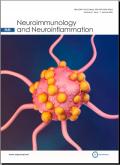Immunotherapy and checkpoint inhibitors for gliomas
引用次数: 1
Abstract
Glioma treatments are faced with challenges, including the inability to fully eliminate cancer stem cells, the immunosuppressive tumor microenvironment, and the blood brain barrier. Although progress has been made with surgical, radiation, and chemotherapies, prognosis for patients remains poor. Rapidly emerging immunotherapies may be able to address the challenges that conventional techniques cannot. Immunotherapies manipulate the patient’s immune system to selectively combat malignancies. Therapies often work to enhance T-cell and natural killer (NK) cell function, which can both eliminate tumor cells and enhance remission. Vaccines encourage in vivo development of anti-tumor T-cells and NK cells, while adoptive transfer techniques focus on engineering immune cells ex vivo before reintroducing them to patients. Vaccine and adoptive transfer therapies have been shown to induce enhanced immune responses in patients but have not always correlated with improved outcomes, likely because of the tumor immunosuppressive microenvironment. Checkpoint inhibitors can impair these tumor immunosuppressive capabilities. Although no one treatment has been able to consistently eliminate gliomas and maintain remission, combinations of vaccines or adoptive transfer techniques in conjunction with immune checkpoint inhibitors offers promise.神经胶质瘤的免疫治疗和检查点抑制剂
胶质瘤治疗面临挑战,包括无法完全消除癌症干细胞、免疫抑制肿瘤微环境和血脑屏障。尽管在手术、放疗和化疗方面取得了进展,但患者的预后仍然很差。快速出现的免疫疗法可能能够解决传统技术无法解决的挑战。免疫疗法操纵患者的免疫系统,选择性地对抗恶性肿瘤。治疗通常能增强T细胞和自然杀伤细胞(NK)的功能,这既能消除肿瘤细胞,又能促进病情缓解。疫苗鼓励体内开发抗肿瘤T细胞和NK细胞,而过继转移技术侧重于在将免疫细胞重新引入患者体内之前进行体外工程。疫苗和过继转移疗法已被证明可以诱导患者增强免疫反应,但并不总是与改善结果相关,可能是因为肿瘤免疫抑制微环境。检查点抑制剂会损害这些肿瘤免疫抑制能力。尽管没有一种治疗方法能够持续消除神经胶质瘤并保持病情缓解,但疫苗或过继转移技术与免疫检查点抑制剂的组合提供了希望。
本文章由计算机程序翻译,如有差异,请以英文原文为准。
求助全文
约1分钟内获得全文
求助全文

 求助内容:
求助内容: 应助结果提醒方式:
应助结果提醒方式:


